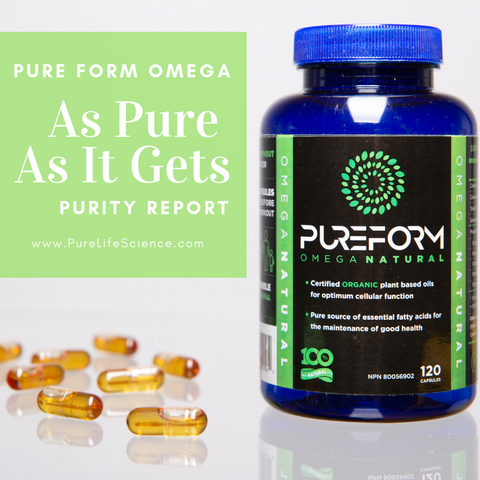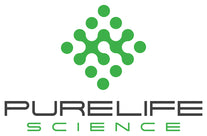Pure Form Omega, As Pure As It Gets | Purity Report

A recent article grabbed my attention and highlights some issues that I have long argued is a problem with Omega fish and krill oil (to read article, please see here). A new study by researchers at the Liggins Institute at the University of Auckland in New Zealand found that nearly 30 percent of newborn pups born to pregnant rats fed highly oxidized (rancid) fish oil died within two days after birth. Mothers given rancid fish oil also had a higher incidence of insulin resistance at weaning compared with those given unoxidized supplements or water. Even the authors where surprised. "Once we discovered so many supplements were oxidized, we decided to focus on the health effects of oxidized fish oil during and after pregnancy," research fellow Dr. Ben Albert, from the Liggins Institute at the University of Auckland said in the release. "We were surprised by the death rate," said study lead Professor Wayne Cutfield, also from the Liggins Institute. "We'd expected some negative health effects on the rat offspring, but we didn't expect them to die."
Remember, these supplements are recommended by nutritional advisors all over the world. According to a press release about the research, "Omega-3 fatty acids are known to be chemically fragile or 'unstable,' and can easily break down when exposed to natural conditions such as light, heat and oxygen." In a previous study, the research team found that 83 percent of supplements sold in New Zealand were oxidized beyond internationally recommended levels. This is in line with other studies that have found highly oxidated in North America, South Africa, and Europe (Cameron-Smith, Benjamin, & Cutfield, 2015).
At Pure Life Science Corp., we only use plant-based Omegas in our Pure Form Omega® Natural product, which are much more compatible with human physiology. The processing ensures freshness, without rancidity, as demonstrated by our recent evaluation by Health Canada by an independent laboratory in California.
As can be seen above, the Anisidine Value (AV), which is a measure of rancidity, was almost undetectable for Pure Form Omega® Natural. It is actually rare to see fish or krill oil under 17 (20 is considered toxic), and there is no risk of contamination with toxic heavy metals as there are with fish oil. Anyone considering Omega supplementation can be assured that Pure Form Omega® Natural is committed to bringing only the best and freshest ingredients to help maximize performance. It’s engineered that way!
REFERENCES
Albert, B. Vickers, M. Gray, C. Reynolds, C. et. al. (2016). “Oxidized fish oil in rat pregnancy causes high newborn mortality and increases maternal insulin resistance.” American Journal of Physiology-Regulatory, Integrative and Comparative Physiology, 311 (3): 497-504.
Cameron-Smith, D., Bejamin, A., Cutfield, W. (2015) “Fishing for answers: is oxidation of fish oil supplements a problem?” Journal of Nutritional Science, 4 (36): N/A.
